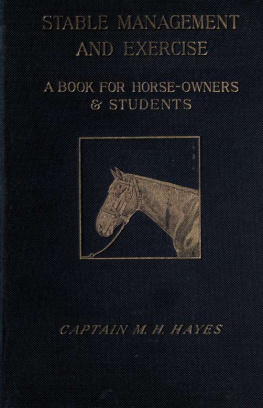THE TAO OF RAVEN

The
TAO of RAVEN
AN ALASKA NATIVE MEMOIR
Ernestine Hayes

2017 by Ernestine Hayes
Printed and bound in the United States of America
Jacket and frontis art: Crystal Worl
Design: Dustin Kilgore
Typeset in Warnock, a typeface designed by Robert Slimbach
20 19 18 17 16 5 4 3 2 1
All rights reserved. No part of this publication may
be reproduced or transmitted in any form or by any means,
electronic or mechanical, including photocopy, recording,
or any information storage or retrieval system, without
permission in writing from the publisher.
Portions of this work have appeared in similar form in
Studies in American Indian Literature, Made of Salmon,
Huffington Post, Tidal Echoes, Mud City Journal, and 49 Writers.
UNIVERSITY OF WASHINGTON PRESS
www.washington.edu/uwpress
Library of Congress Cataloging-in-Publication Data
Names: Hayes, Ernestine, 1945 author.
Title: The tao of raven : an Alaska native memoir / Ernestine Hayes.
Description: Seattle : University of Washington Press, 2016.
Identifiers: LCCN 2016007836 | ISBN 9780295999593 (hardcover : alk. paper)
Subjects: LCSH: Hayes, Ernestine, 1945 | Tlingit IndiansAlaskaBiography. | Tlingit womenAlaskaBiography. | Women college teachersAlaskaBiography. | HomecomingAlaska. | Tlingit IndiansAlaskaSocial life and customs. | Tlingit IndiansAlaskaSocial conditions. | AlaskaSocial conditions.
Classification: LCC E99. T6 H39 2016 | DDC 979.8004/9727dc23
LC record available at https://lccn.loc.gov/2016007836
The paper used in this publication is acid-free and meets
the minimum requirements of American National Standard
for Information SciencesPermanence of Paper for
Printed Library Materials, ANSI Z39.481984.
For all those who came before me
and all those who come after me
CONTENTS
ONE
Brown Bear Spins beneath the Darkly Spinning Stars
TWO
Wolves Sing like Old Women Keeping Ancient Songs
THREE
Regret and the Forest Are Patient Teachers
FOUR
They Are Holding Everything for Us
PROLOGUE
At a time so long ago it can be measured neither by following the moons slow dance nor by tracing the suns brightened path, had moon and sun then been part of life, darkness was upon the face of the world. This circumstance made it difficult for human beings to conduct their ordinary lives. For example, how much more difficult to impress one another when decisions are made in the dark. How much more difficult to recognize an ally, how much more difficult to praise anothers significance, thereby increasing ones own importance. How much more difficult to confront a shadow, to challenge the gloom. In an unbrightened world, light does not reveal itself. It must be stolen.
Liberated. Reclaimed, some might say.
Raven has always and not always been around to be amused at the pitiful antics of self-important human beings, and no doubt he found amusement in the ill-composed conditions of a darkened world. But, although he may have discerned intrigue and opportunity, although he may have sensed illicit adventure, although he could well have been distracted by wonders that he alone could see, nevertheless Raven decided to do something about the darkness.
Raven knew about an old man who lived with his daughter in a well-fortified house in an isolated place at the top of a river far away. This old man, it was said, kept in his house precious bentwood boxes in which could be found answers to the darkness. It was said that this old man guarded these boxes even more carefully than he guarded his daughter. He allowed his daughter to venture outside the house for such purposes as gathering roots and collecting water, but never did he allow his precious boxes to be removed from his house or even to be opened, or even to be looked upon, or even to be named.
Raven decided that it was a good time to investigate. But when Raven traveled to that old mans house, built so close to the Nass River, he was unable to discover an easy entry. In other words, there was no doorway through which he could be invited; there was no window through which he could climb. Though Raven walked around and around and around that old mans house, he never was able to find a direct way to get inside.
But Raven noticed that every once in a while that old mans daughter appeared outside the house and carried a container down to the rippling water, where she filled the woven water-basket from the fresh clear stream. Although Raven studied her every move, he was unable to perceive how she gained entry back into the house.
These riddles kept him puzzling for what would have been days had there been daylight and for what would have been nights had there been stars. After much deliberation, after careful calculation, after he finally decided that the proper moment had arrived, Raven transformed himself into a pine needle and dropped himself into the water that the old mans daughter was about to drink, at which time that old mans daughter, no doubt tasting water sweeter than she had tasted ever before, swallowed Raven in his pine-needle form. When that immediate inevitable moment revealed itself in its endless existence, Raven transformed himself and was transformed and that old mans daughter became pregnant with Raven-child.
After waiting a while inside his mothers womb, Raven allowed himself to be born, whereupon he entered the guarded house and reentered the unguarded world in the manifestation of a newborn human baby. At once he became something more dear to that old mans eyes than even those precious boxes of light.
That delighted grandfather, that old man, loved to pretend to chase his grandchild from the front of his house to the back, past the curtained sleeping crannies, past the piled-high plain wooden boxes of dryfish and seaweed, past the woven water-baskets, past the house posts, past the screen, around again to the opposite wall, catching him and spinning dreams and hopes into the contented air. The old man delighted more and more in his Raven grandchild, playing peek-a-boo games and singing him lullabies and feeding him tender tidbits of salmon cheeks and the steamed soft eggs of seabirds still crying for their young. At the rare times that Raven fussed, the old grandfather bounced baby Raven on his knee and nuzzled baby Ravens neck and checked the moss around baby Ravens sleeping place to satisfy himself that it remained dry and soft and safe.
After a while, after a not-yet-measured time, Raven began to cry for those bentwood boxes. No matter how strong the spirits that protected the boxes and the priceless objects inside, Raven must have been confident that the love his grandparent held for him was deeper and more secure.
When baby Raven cried for the first bentwood box, the old man must surely have thought to refuse. But Raven kept crying, and the old man gave in, just as Raven knew he would do. Ravens grandfather watched him open that first box and admire all the stars that it contained. After only a while, not long enough for a grandparent to feel sated by his grandchilds laugh, Raven tossed the stars into the sky, whereupon our world became brighter by the measure of one Box of Starlight, and the old mans house became darker in the same regard.
Next page













